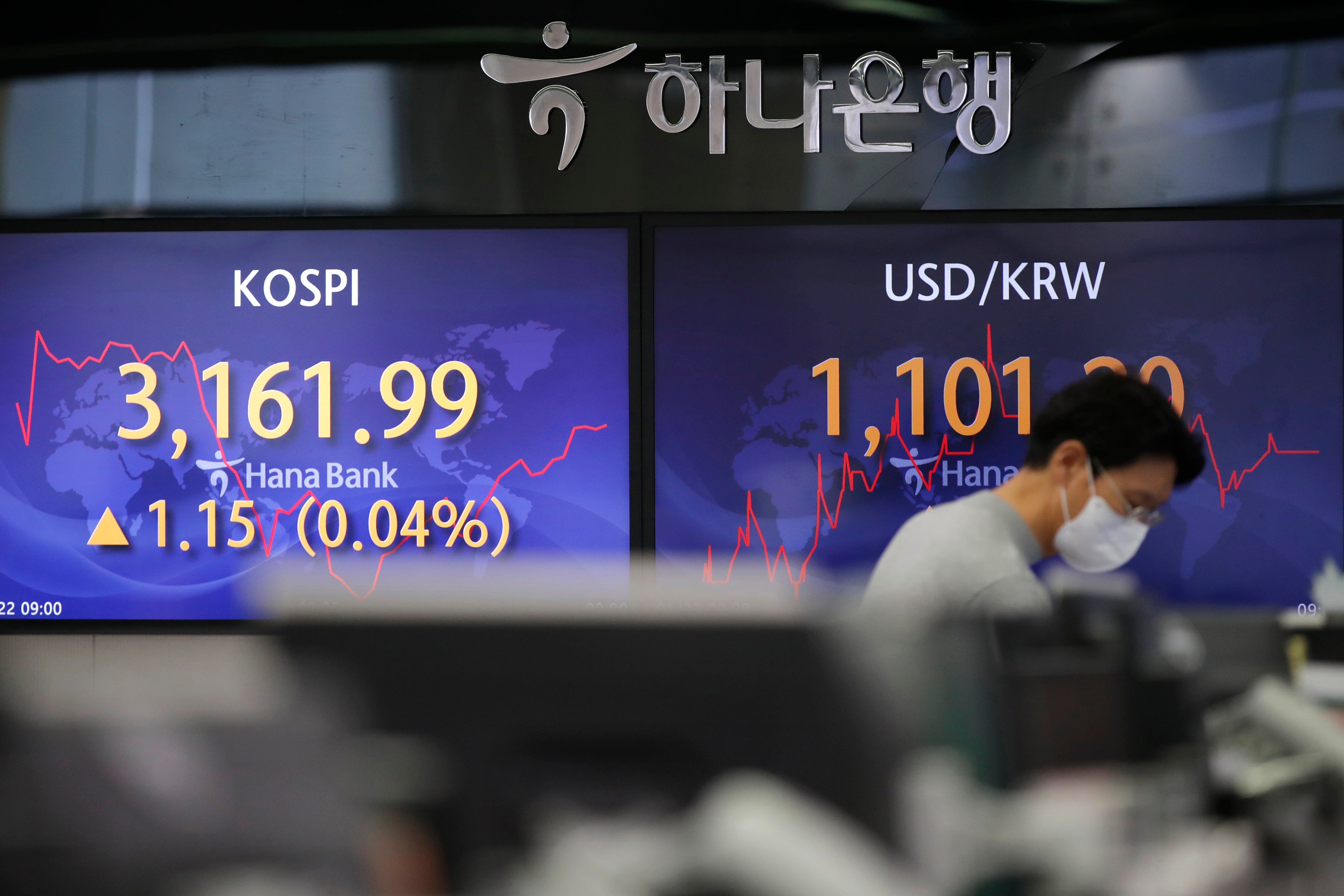Asian stocks sink after China coronavirus resurgence
Asian stock markets have retreated after a resurgence of coronavirus infections in China and a rise in cases in Southeast Asia

Asian stock markets retreated Friday after a resurgence of coronavirus infections in China and a rise in cases in Southeast Asia.
Shanghai, Hong Kong, Tokyo and Australia declined. South Korea advanced.
Overnight, Wall Street closed higher. Gains for tech stocks offset losses elsewhere.
Optimism about the rollout of coronavirus vaccines was dented by a spike in infections in China, where the disease had been under control. The government is testing millions of people in Beijing and some other cities. Authorities have called on the public to avoid travel during February's Lunar New Year holiday.
That has “raised some concerns among investors who, after a slow start to the global vaccine rollout, are debating how fast economies can vaccinate the most vulnerable and start returning to business as usual,” said Stephen Innes of Axi in a report.
The Shanghai Composite Index lost 0.6% to 3,601.41 while the Nikkei 225 in Tokyo sank 0.3% to 28,682.66. The Hang Seng in Hong Kong fell 1.4% to 29,502.92.
The Kospi in South Korea, where the increase in virus cases has slowed, was off less than 0.1% at 3,159.37 at midday after being up in the morning.
The S&P-ASX 200 in Sydney shed 0.3% to 6,800.40. New Zealand advanced 1.7% while Singapore and Indonesia declined.
On Wall Street, the benchmark S&P 500 index ended up less than 0.1% at 3,853.07 on Thursday after a day of chopping trading. The Dow Jones Industrial Average lost less than 0.1% to 31,176.01.
The tech-heavy Nasdaq composite climbed 0.6% to 13,530.91 after traders bid up shares in Big Tech stocks, including Apple, Amazon and Facebook. That helped outweigh losses in energy, bank and other stocks.
Stocks have risen on optimism the rollout of vaccines developed by U.S., European and Chinese drug companies would allow economies to return to normal.
Markets also have been encouraged by the inauguration of President Joe Biden, who has proposed a $1.9 trillion economic aid package, including $1,600 cash payments for most Americans.
Those hopes have been jolted by an upsurge in infections, including in Asia, and the emergence of new virus variants that might be more infectious.
China, where the pandemic began in late 2019, has reimposed travel controls after outbreaks in Beijing and other cities. The government is building isolation hospitals with thousands of beds in Hebei province, which abuts the capital.
On Friday, China reported 103 new infections, the country's 11th day with more than 100 confirmed cases.
“The resurgence of cases in China, namely in the largest cities of Beijing and Shanghai, ahead of the Chinese New Year holidays is a cause of concern,” said Mizuho Bank in a report.
The Chinese government has called on the public to avoid gatherings and travel during the Lunar New Year holiday, normally the year's most important family event. That is likely to dent spending on gifts, banquets and tourism, but economists say industrial activity might benefit if employees stay at their jobs.
Deaths are rising in Indonesia while case numbers increase in Malaysia, Thailand and the Philippines.
Benchmark U.S. crude lost 64 cents to $52.49 per barrel in electronic trading on the New York Mercantile Exchange. The contract fell 11 cents on Thursday to $53.13. Brent crude, the price standard for international oils, shed 61 cents to $55.49 per barrel in London. It rose 2 cents the previous session to $56.10 a barrel.
The dollar gained to 103.57 yen from Thursday's 103.52. The euro advanced to $1.2172 from $1.2160.
Bookmark popover
Removed from bookmarks